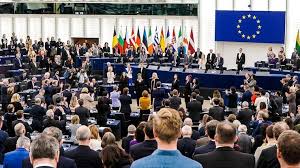Review of the practice of the European Court of Human Rights for January-February 2024
In January-February 2024, the European Court of Human Rights (ECtHR) passed a number of decisions that are important for law enforcement practice in Ukraine. The Supreme Court prepared an overview of these decisions, which concern violations of the articles of the Convention on the Protection of Human Rights and Fundamental Freedoms, in particular Article 6 (right to a fair trial), Article 8 (right to respect for private and family life), Article 10 (freedom of expression) , as well as Article 1 of the First Protocol to the Convention (property protection). The review also presents a list of ECtHR decisions against Ukraine. This review is an important source of information for Ukrainian lawyers, judges and anyone interested in the protection of human rights.
The right to a fair trial (Article 6 of the Convention)
One of the important decisions in this period is the case "SNIJDERS v. The Netherlands". In this case, it was about the lack of opportunity for the applicant and his defense counsel to conduct a direct cross-examination of an anonymous witness. The applicant claimed that this violated his rights under Article 6 of the Convention. However, the ECtHR found no violation in this case, taking into account several important factors. First, the domestic courts had good reasons for withholding the identity of the witness, as there was a real threat to his life due to the applicant's violent crimes. Secondly, the applicant's conviction was not based solely on the testimony of an anonymous witness. Finally, there were sufficient factors to counterbalance the disadvantages that might arise from the admission of the anonymous witness's testimony in evidence.The right to respect for private and family life (Article 8 of the Convention)
The judgments considered by the ECtHR also include cases concerning the right to respect for private and family life. Although specific details of such cases are not given in the review, it is important to note that the court constantly pays attention to the balance between the rights of the individual and the interests of the state, in particular with regard to issues related to interference in private life, storage and processing of personal data.
Freedom of expression (Article 10 of the Convention)
The case "DANILEŢ v. Romania", which related to the disciplinary sanction imposed on a judge for his publications on Facebook. The applicant was punished for two messages in which he, among other things, alluded to political control of state bodies and called for the intervention of the army to ensure constitutional democracy. The disciplinary body believed that this caused damage to the honor and reputation of the judiciary. The second message concerned an article about a prosecutor who criticized initiatives to change the judicial system.
The ECtHR found that national courts did not take into account all important factors when deciding on disciplinary sanctions. In particular, the courts did not pay due attention to the context of the applicant's statements, his participation in the discussion of socially important issues, the validity of his evaluation judgments, and the potential deterrent effect of the imposed sanction. In addition, the courts did not give due weight to the applicant's freedom of expression, which is a key aspect of human rights.You may be interested in the following articles: lawyer consultation, lawyer consultation, analysis of documents, legal analysis of the situation, written consultation, verification of documents by a lawyer, lawyers, documents, lawyer's assistance online, lawyer online, legal opinion, legal opinion of a lawyer, lawyer online
Protection of property (Article 1 of the First Protocol to the Convention)
Decisions of the ECtHR, which concern the protection of property, are also important for Ukraine. Although specific examples are not provided in the review, in general the court draws attention to the need to ensure a fair balance between the public interest and the owner's rights. This is especially relevant in the context of confiscation of property, reprivatization and other interventions in property rights.
Conclusion
The review of the practice of the ECtHR for January-February 2024, prepared by the Supreme Court, is an important tool for improving law enforcement in Ukraine. It provides valuable information about the ECtHR's approaches to the protection of human rights and can be used to improve the quality of judicial decisions in Ukraine. Current ECtHR decisions help national judges navigate complex legal issues and ensure the highest level of human rights.





























